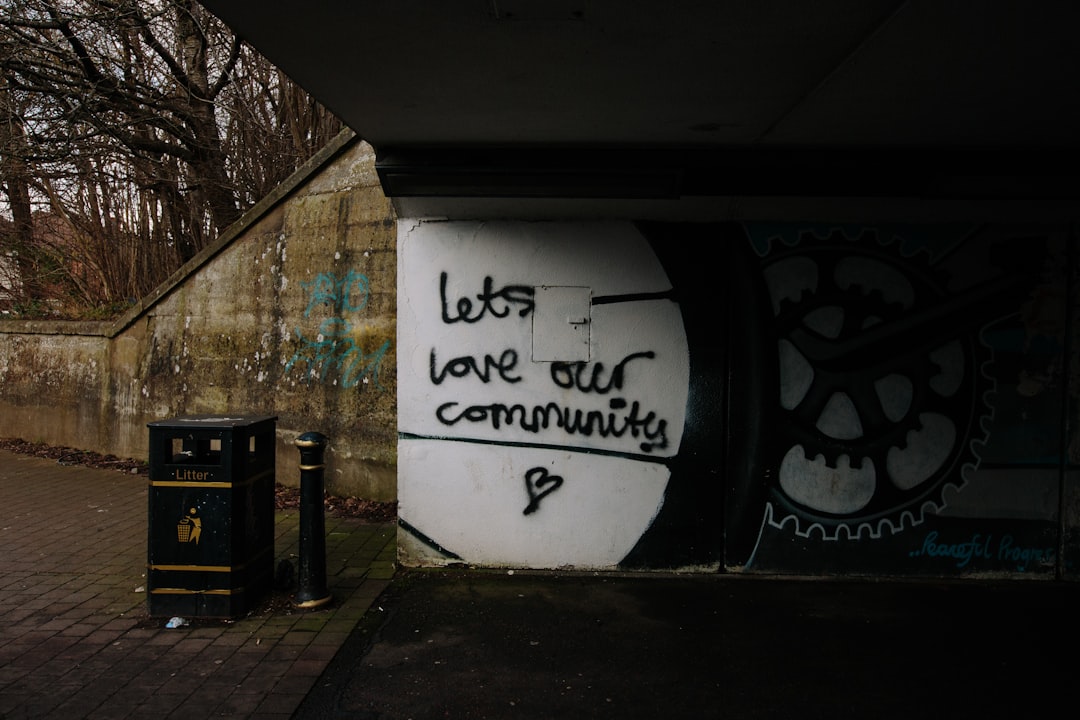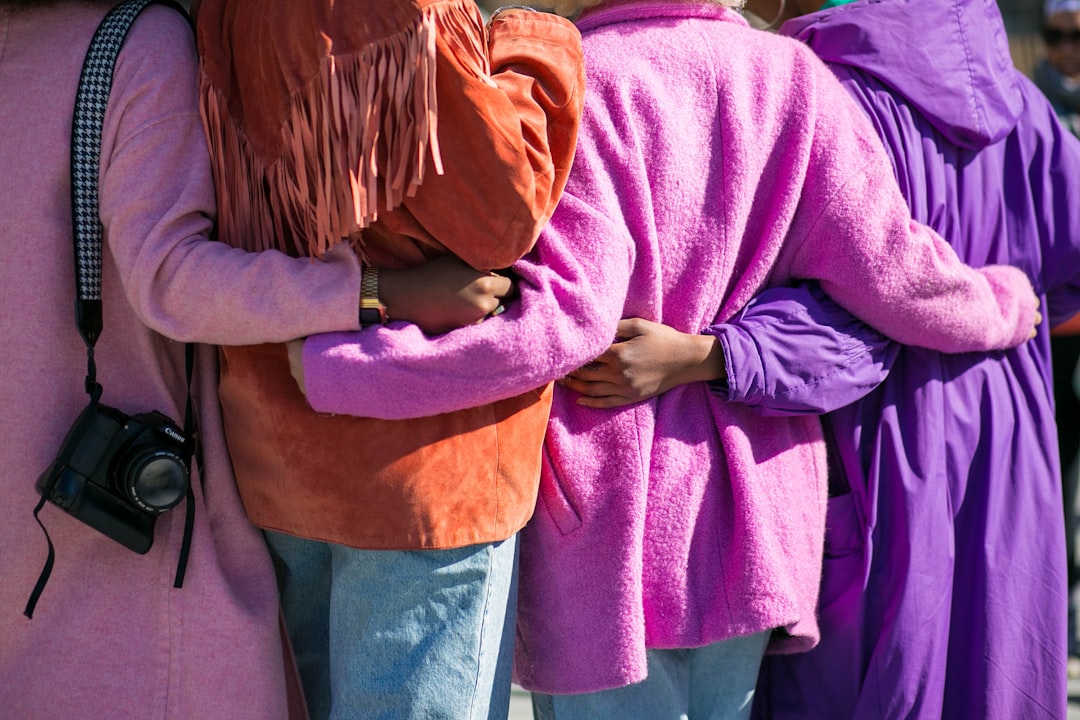Sermon Notes - #005: Love Speaks Louder than Words
Open in browser Readings: Acts 11:1-18; Revelation 21:1-6; John 13:31-35; Psalm 148
You would not be wrong if you summarised Jesus’ entire ministry with the words “I give you a new commandment—to love one another. Just as I have loved you, you also are to love one another.” (John 13:34) This section of the text is part of Jesus’s final days before his passion. “Children, I am still with you for a little while. You will look for me, and just as I said to the Jewish religious leaders, ‘Where I am going you cannot come,’ now I tell you the same.” (v. 33) What stands out however is the commandment he gives his disciples: to love one another. This will be our focus this week. “Just as I have loved you, you also are to love one another. Everyone will know by this that you are my disciples—if you have love for one another.” (vv 34b-35) To love one another is grounded in a second statement: “just as I have loved you.” You could say that Jesus implores his disciples to do what he has been doing for a long time—love them. But we would be amiss if we started addressing Jesus’s new commandment without first acquainting ourselves with Jesus’ love for others. What is it? What does it look like? What is so special about it? Humiliation as the greatest expression of loveJesus, in John 15:12-13, describes this love: “My commandment is this—to love one another just as I have loved you. No one has greater love than this—that one lays down his life for his friends.” Elsewhere, Paul in Philippians 2:5-8 says,
The love of God in Christ can be understood primarily as self-giving love. Its expression finds meaning in humiliation, lowliness, rejection, and death. The Roman cross was the epitome of humiliation. It carried in it the full weight of shame and immense personal suffering. Crucified people were stripped naked, and not even a single undergarment remained. They were made to walk from their place of condemnation—mostly a town square—to their place of execution—a central place—carrying the pole on which they would be crucified. As the one to be crucified walked to their place of crucifixion, scoffers would follow behind saying all sorts of dehumanizing and humiliating words. Even the relatives and friends felt the full weight of that humiliation. Jesus’ friends deserted him. The very thought of watching someone they love and care about go through such humiliation was too heavy to bear. When it came to the very crucifixion, nails were run through the hands, just behind the wrist. The sanitised pictures of Jesus with nail holes in the palm don’t tell the real story. A nail run through the palm would tear it as the palms were not heavy enough to carry the weight of the body. So, the nails had to be run through bones. The person was then fastened to a pole and raised for everyone to see. The organs would fail, as the person internally bled to death. The Roman soldiers would then put a sign with the name of the humiliated party right above their heads. For Jesus, it read “Jesus the Nazarene, King of the Jews.” (Jn 19:19). As a social outcast, known by name, you’d live in the memory of many. Crucifixion is not something you came back from. It not only injured the body but also dented one social image. Yet Jesus voluntarily signed up for this. “No one has greater love than this—that one lays down his life for his friends.” Jesus’ humiliation was a voluntary act inspired by nothing else but love. Only love, genuine love, could go to such length. To love is to die for the one you love. To love is to be humiliated. To love is to endure pain. Love, by Jesus’ terms, is to lay down one’s life for their friend. That is love, by Jesus. Love in the Christian community
The prototype of what love looks like is Jesus’s self-giving love. “We have come to know love by this: that Jesus laid down his life for us; thus, we ought to lay down our lives for our fellow Christians.” (1 Jn 3:16) There seem to be many versions of what love looks like and how it is expressed. Indeed, we have love doctors and all sorts of experts who coach us on what we ought to do to love or be loved. Our love gurus present love as means to self-fulfilment and personal gratification. It is an individual thing done to the benefit of the doer. Love, as we know it today, is individualistic. The focus is on the lover and how well that love reflects on them. Even in the Christian community, we love because it makes us feel good about ourselves. Worse still, we have a genre in the church which uses love as a means of buying acceptance, favour, and approval before God and men. You see this in the enterprise of giving—they call it ‘sowing a seed’. This is a prevailing problem that bedevils some sections of the church. If it is giving to the poor, it's because God will see it and bless us a hundred-fold. If it's supporting church ministers, God will bless us even more. Some Nigerian fella asked, ‘how do you expect God to bless you with a million dollars if all you are giving in the house of the Lord is $10?’ Another one said that the money you give helps build your eternal house in heaven. How absurd! May I spend all eternity in heaven under a mango tree! What I am trying to show you here is that our version of what it means to love has been corrupted by our bankrupt need to profit from every situation. Even some people get married for the social capital it gives them. “How will my relatives see me if I don’t have a husband by the age of 32?” Have you ever wondered what the fuss is with roadside, traffic-halting marriage proposals? On what it means to “lay down our lives for our fellow Christians”, John says “But whoever has the world’s possessions and sees his fellow Christian in need and shuts off his compassion against him, how can the love of God reside in such a person?” (1 Jn 3:17) Here John focuses this self-giving love on two things: 1) the ability to see, 2) and meet others’ needs. First, seeing a needNeeds are not just material possessions. When reading the verse above, bear that in mind. While some have material needs like clothing, food, or shelter, other needs are immaterial. For instance, this week, a report in the New Vision said that 14 million Ugandans have some form of mental illness. Some people need mental health help. Last year, reports singled out the rising number of teenage pregnancies and child marriages. Some people need protection. We have also seen gruesome pictures of people who have been tortured by rogue political operatives. Some people need their liberties protected. The world came to a standstill when a white police officer, Derek Chauvin knelt on the neck of George Perry Floyd Jr. for 8 minutes and 46 seconds until his body went cold. Some people need to breathe. A friend in seminary once said that her local church had given up on her, even her donors because she had accepted a call to pastoral ministry. Some people need to be supported. There are so many needs in this world. Even in our Christian family, needs are waiting to be seen. Paul in 1 Cor 12 says that the Christian community is the body of Christ and is composed of many parts. Each one of us is a part of that body. Although we serve different functions, each is needed for the body to function properly. “If one part suffers, every part suffers with it. If one part is honored, every part shares in its joy.” (v. 26) Being part of a healthy body is enough to see each other’s needs. To have the eyes of love is to see the needs of those around us. But seeing a need is not enough. We are called to go a notch higher. Then, meeting the needs of the Christian communityI think meeting a need is harder than seeing one. Sometimes meeting the needs of others might require that we make choices that may put us at loggerheads with the people we are close to. People-pleasing can get in the way of meeting others’ needs. Sometimes, we may need to re-evaluate our stance on particular topics or ideas, and value systems. Or even having to choose between some family members and our Christian witness. Jesus was always invoking the wrath of the religious leaders of his day whenever he decided to place the needs of his community above the rules of his time. One time he decided that he would dine with the chief tax collector Zaccheus, a cheat, traitor, social outcast, and conspirator with the Romans. He was a hated man, but Jesus saw his need and sought to meet it. While at Zacchaeus’ house, Jesus remarked “Today salvation has come to this house because he also is a son of Abraham; for the Son of Man has come to seek and to save that which was lost.” (Lk 19:9-10) Zacchaeus needed redemption, he was lost and socially distant, but someone needed to accept him, even at the expense of social disapproval. Or consider my hero, Archbishop Janani Jakaliya Luwum. As a church leader, he became a fierce critic of Idi Amin’s regime. People were disappearing while others were facing the firing squad in town squares. Idi Amin was butchering people at will. When Archbishop Luwum protested these arbitrary killings, he was picked by Amin’s henchmen. He later showed up dead with a bullet wound in the mouth. St. Luwum had to lay down his life for those whose voices had been muzzled. It took his life to speak to the sanctity of the lives of those who didn’t have a voice. Sometimes meeting the needs of others will put us in a place of vulnerability. For most of us, our experiences in meeting others’ needs will not be as extreme as Jesus’ or St. Luwum’s. You will be rejected. Some will attach labels to you even when you don’t subscribe to them. Some will even try to character assassinate you. Love, in this sense, requires courage. But get this: love sees and meets the needs of God’s people, even at the expense of societal approval. The eyes of love see a need, and the hands of love meet that need. That is what it means to love each other. By this, they will knowThe life of a witness is hard. The cost of truth can be blood, sweat, or tears. Yet that thing that distinguishes Jesus’s disciples from the disciples of this world is love. Love for one another. “Everyone will know by this that you are my disciples—if you have love for one another.” Do you know the other thing that was on display in Jesus’s humiliation by way of the Roman cross, and in St. Luwum’s shed blood? It was the display of their fierce love for God’s people. While the cross hangs Jesus naked in shame, it also hangs in him the emblem of unfailing love for humanity. The bullets which pierce through St. Luwum’s neck not only take his life, but they also etch his unmoving witness in the hearts and minds of the church. By their love, the whole world knows that they are God’s. And so, our love and witness are not found in singing about how we love God. Neither is it found in a close-minded attitude towards those who are different from us or those of low stature in society. Our problem is that we try to decide for God who his people are then go ahead and accept those. But the commandment is clear: “love one another.” Nowhere does it say “first, choose, and then love those you have chosen.” No sir! The encouragement is that “We love because he loved us first.” (1 Jon 4:19) His love for us, births in us a loving desire to love others. As someone has said, “The love of God for Christians becomes the love of God between Christians.” I will close with this verse from the 1966 hymn They'll Know We Are Christians by a Roman Catholic priest, Fr Peter Scholtes,
In the name of the Father, the Son, and the Holy Spirit, Amen.  If you liked this post from Sermon Notes, why not share it? |
Older messages
#006: The Holy Spirit and the Questions We Ask
Saturday, May 28, 2022
The Sixth Sunday of Easter: Rogation
You Might Also Like
eBook & Paperback • Demystifying Hospice: The Secrets to Navigating End-of-Life Care by Barbara Petersen
Monday, March 3, 2025
Author Spots • Kindle • Paperback Welcome to ContentMo's Book of the Day "Barbara
How Homer Simpson's Comical Gluttony Saved Lives
Monday, March 3, 2025
But not Ozzie Smith's. He's still lost, right?
🧙♂️ Why I Ditched Facebook and Thinkific for Circle (Business Deep Dive)
Monday, March 3, 2025
Plus Chad's $50k WIN ͏ ͏ ͏ ͏ ͏ ͏ ͏ ͏ ͏ ͏ ͏ ͏ ͏ ͏ ͏ ͏ ͏ ͏ ͏ ͏ ͏ ͏ ͏ ͏ ͏ ͏ ͏ ͏ ͏ ͏ ͏ ͏ ͏ ͏ ͏ ͏ ͏ ͏ ͏ ͏ ͏ ͏ ͏ ͏ ͏ ͏ ͏ ͏ ͏ ͏ ͏ ͏ ͏ ͏ ͏ ͏ ͏ ͏ ͏ ͏ ͏ ͏ ͏ ͏ ͏ ͏ ͏ ͏ ͏ ͏ ͏ ͏ ͏ ͏ ͏ ͏ ͏ ͏ ͏ ͏ ͏ ͏ ͏ ͏ ͏ ͏ ͏ ͏
I'd like to buy Stripe shares
Monday, March 3, 2025
Hi all, I'm interested in buying Stripe shares. If you know anyone who's interested in selling I'd love an intro. I'm open to buying direct shares or via an SPV (0/0 structure, no
What GenAI is doing to the Content Quality Bell Curve
Monday, March 3, 2025
Generative AI makes it easy to create mediocre content at scale. That means, most of the web will become mediocre content, and you need to work harder to stand out. ͏ ͏ ͏ ͏ ͏ ͏ ͏ ͏ ͏ ͏ ͏ ͏ ͏ ͏ ͏ ͏ ͏ ͏
mRNA breakthrough for cancer treatment, AI of the week, Commitment
Monday, March 3, 2025
A revolutionary mRNA breakthrough could redefine medicine by making treatments more effective, durable, and precise; AI sees major leaps with emotional speech, video generation, and smarter models; and
• Affordable #KU Kindle Unlimited eBook Promos for Writers •
Monday, March 3, 2025
Affordable KU Book Promos "I'm amazed in this day and age there are still people around who treat you so kindly and go the extra mile when you need assistance. If you have any qualms about
The stuff that matters
Sunday, March 2, 2025
Plus, how to build a content library, get clients from social media, and go viral on Substack. ͏ ͏ ͏ ͏ ͏ ͏ ͏ ͏ ͏ ͏ ͏ ͏ ͏ ͏ ͏ ͏ ͏ ͏ ͏ ͏ ͏ ͏ ͏ ͏ ͏ ͏ ͏ ͏ ͏ ͏ ͏ ͏ ͏ ͏ ͏ ͏ ͏ ͏ ͏ ͏ ͏ ͏ ͏ ͏ ͏ ͏ ͏ ͏ ͏ ͏ ͏ ͏ ͏
Food for Agile Thought #482: No Place to Hide from AI, Cagan’s Vision For Product Teams, Distrust Breeds Distrust
Sunday, March 2, 2025
Also: Product Off-Roadmap; AI for PMs; Why Rewrites Fail; GPT 4.5 ͏ ͏ ͏ ͏ ͏ ͏ ͏ ͏ ͏ ͏ ͏ ͏ ͏ ͏ ͏ ͏ ͏ ͏ ͏ ͏ ͏ ͏ ͏ ͏ ͏ ͏ ͏ ͏ ͏ ͏ ͏ ͏ ͏ ͏ ͏ ͏ ͏ ͏ ͏ ͏ ͏ ͏ ͏ ͏ ͏ ͏ ͏ ͏ ͏ ͏ ͏ ͏ ͏ ͏ ͏ ͏ ͏ ͏ ͏ ͏ ͏ ͏ ͏ ͏ ͏ ͏ ͏ ͏
Pinterest For Authors 📌 30 Days of Book Pins 📌 1 Each Day
Sunday, March 2, 2025
"ContentMo is at the top of my promotions list ... "I'm amazed in this day and age there are still people around who treat you so kindly and go the extra mile when you need assistance. If

